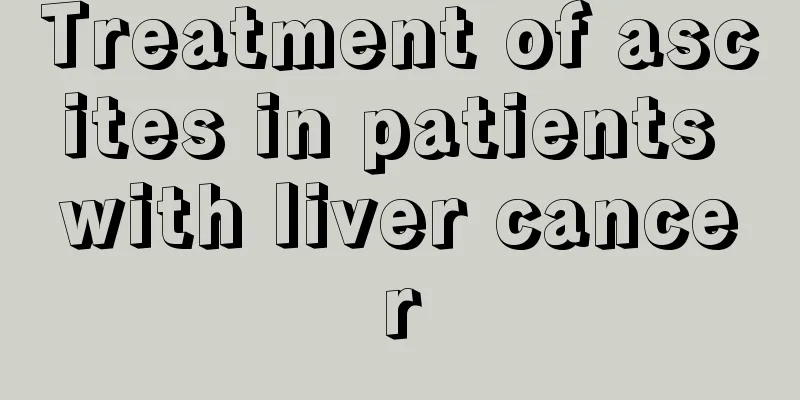Is laryngeal cancer growing on the vocal cords serious?

|
Laryngeal cancer that grows on the vocal cords is a more serious type of cancer and should be treated as early as possible. Vocal cord cancer often presents as persistent hoarseness and is a common type of laryngeal cancer. Timely treatment can improve survival rates. Specific treatment methods include surgery, radiotherapy and chemotherapy. You should also pay attention to lifestyle adjustments. 1) Why is vocal cord cancer serious? The threat of vocal cord cancer to health is mainly reflected in its characteristics: first, its malignancy can affect the vocal function, making it difficult to speak; second, as the disease progresses, cancer cells may invade other tissues in the larynx and even cause breathing difficulties. Tumors in the vocal cord area are also metastatic. If not discovered and treated in time, they may further spread to other parts, increasing the difficulty of treatment and even threatening life. 2) Possible causes of vocal cord cancer The main factors that cause vocal cord cancer can be divided into three categories: genetic, environmental and physiological. -Genetic factors: If there is a laryngeal cancer patient in the family, all members need to pay close attention to their laryngeal health, because the impact of genetics on cancer is one of the recognized risks. - Environmental factors: Long-term smoking is the primary factor leading to vocal cord cancer. Smokers' exposure to carcinogens (such as nicotine and tar in tobacco) can cause cell mutations in the vocal cord area. Other factors such as long-term drinking and eating hot or spicy foods may also increase the incidence of laryngeal cancer. - Physiological factors: Chronic pharyngitis and overuse of the vocal cords (such as excessive use of the voice) are the causes of laryngeal cancer. Long-term uncured throat infections may cause local cells to become cancerous. 3) How to treat vocal cord cancer Treatments for vocal cord cancer generally include the following: -Surgery: Partial laryngectomy is recommended for early-stage vocal cord cancer. Only the diseased area is removed, which is both curative and can preserve some vocal function. Laryngectomy may be required for advanced-stage patients. -Radiotherapy: Patients with early-stage tumors can be cured through single radiotherapy, where the radiation energy is directed to the affected area to destroy cancer cells. -Chemotherapy: It is mostly used for patients in the advanced stage, often combined with radiotherapy or surgery, such as using drugs such as cisplatin and fluorouracil to control the spread of cancer cells. In addition to the above treatment options, during the recovery period, you should pay attention to a balanced diet, avoid smoking and drinking, and have regular checkups to monitor your condition. Vocal cord cancer is a serious disease that requires early detection and timely treatment. If you or someone close to you has persistent hoarseness, especially without obvious causes, it is recommended that you go to the hospital for a laryngoscopy and biopsy of the lesion as soon as possible to increase the possibility of cure. Good living habits and attention to changes in the body can help reduce the risk of disease. |
<<: What are the symptoms of renal hamartoma
>>: Can pelvic mass cause ovarian cancer?
Recommend
What to do if a girl has dark armpits
Girls are more aware of dark armpits. The pores i...
How much sleep do teenagers get
We all know that the average person needs 7 to 8 ...
How to educate an 8-month-old baby?
Today’s parents attach great importance to their ...
There are several types of herpes, and common types need to be prevented
Herpes is a disease that can be transmitted throu...
Is it normal for one side of the tonsil to be inflamed?
Tonsillitis is contagious to a certain extent, bu...
What is the reason for blurry eyes?
Many friends will find that after using their eye...
What are the symptoms of early bone cancer?
Most people have a vague understanding of bone ca...
Is it unlucky to have termites at home?
Netizens always ask what it means to have termite...
My stomach has been hurting for the past six months. I wonder if it is stomach cancer
Stomach pain is a common symptom that can be caus...
What are the attenuated vaccines?
After a child is born, he or she needs to go to t...
What are the potential complications of uterine cancer
Endometrial cancer is one of the common malignant...
Can I exercise if I have fibroids?
In our real life, many people know that exercise ...
Clinical symptoms of teratoma
Teratoma is a very small tumor that does not caus...
How to recover from moderate myopia?
Speaking of the phenomenon of myopia, it is indee...
What are the early symptoms of small cell lung cancer
Small cell lung cancer often occurs in smokers, a...









